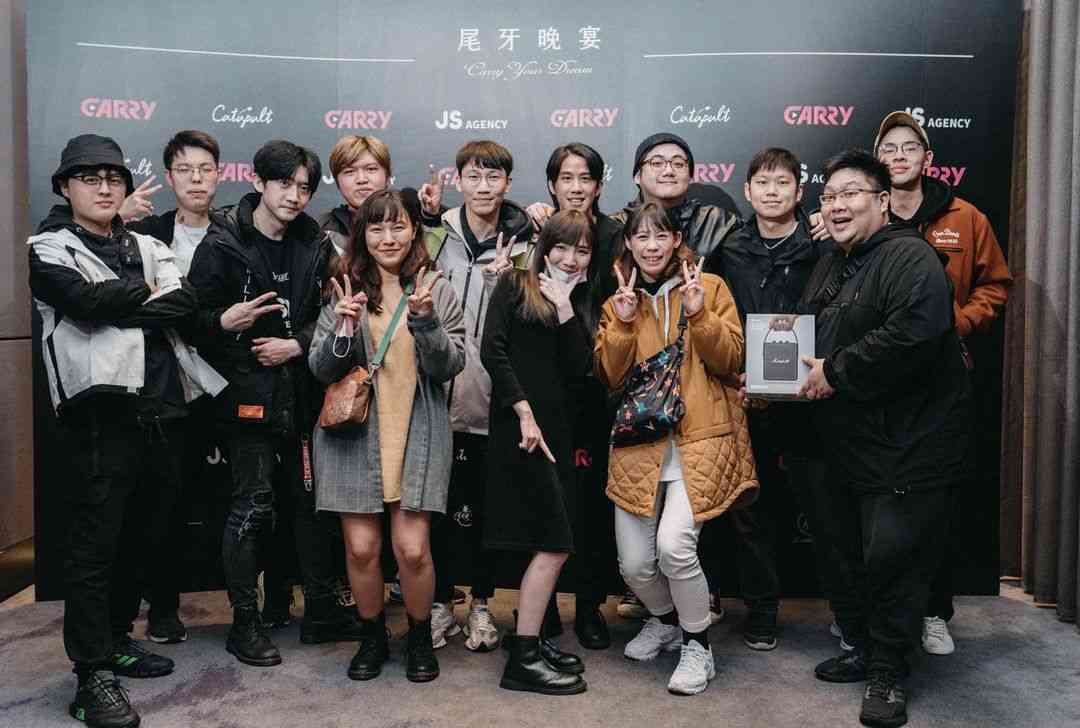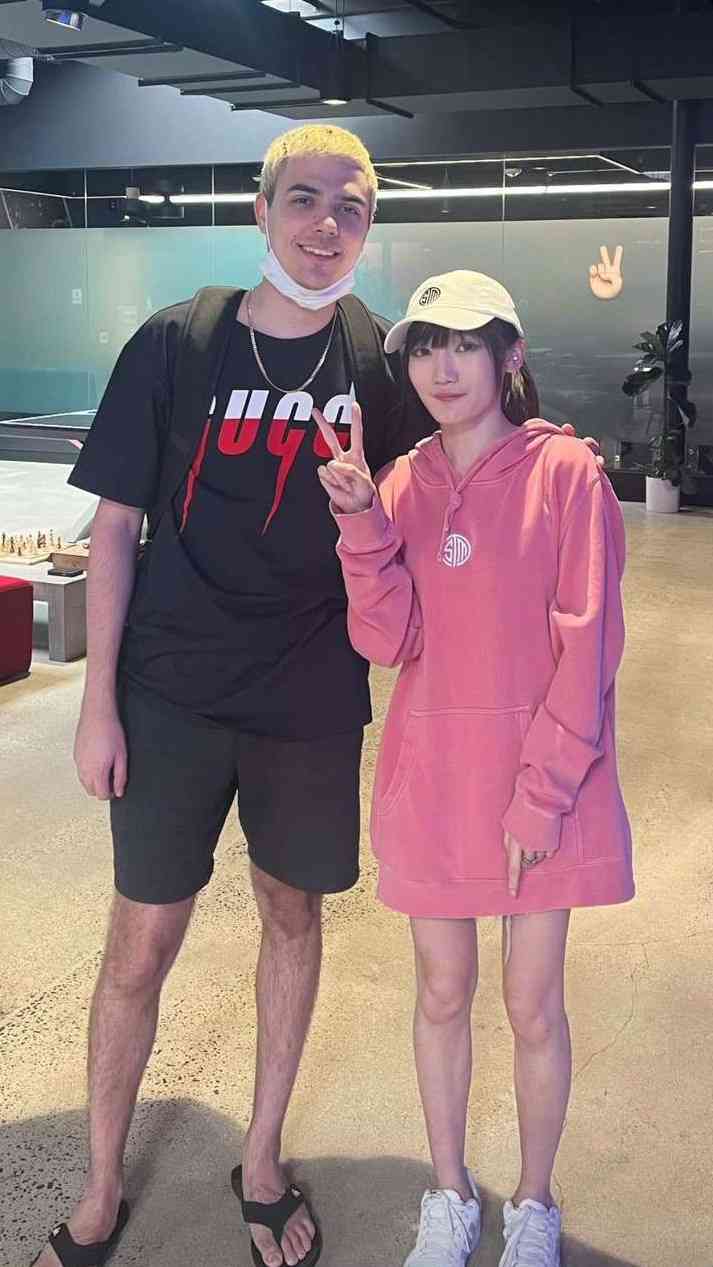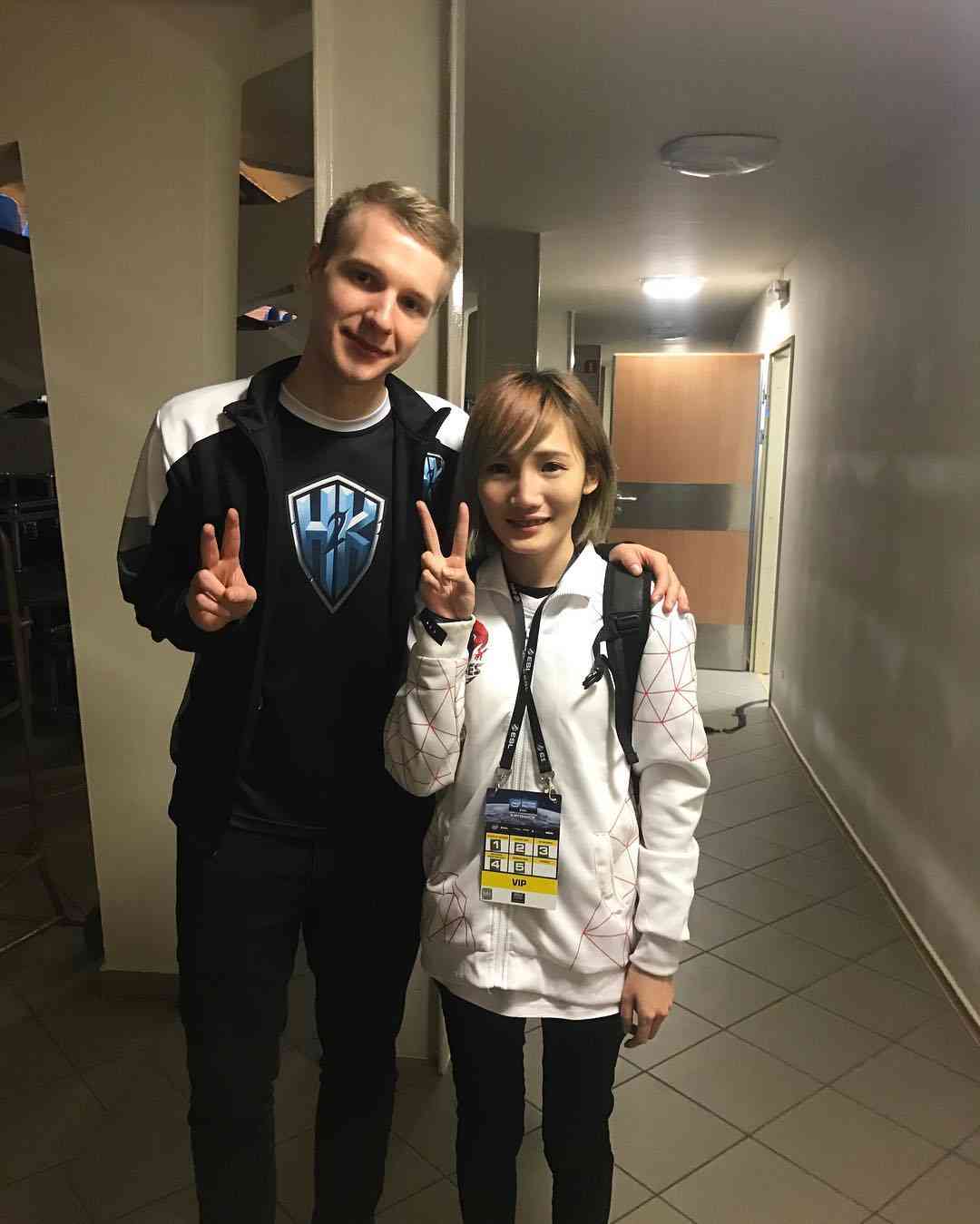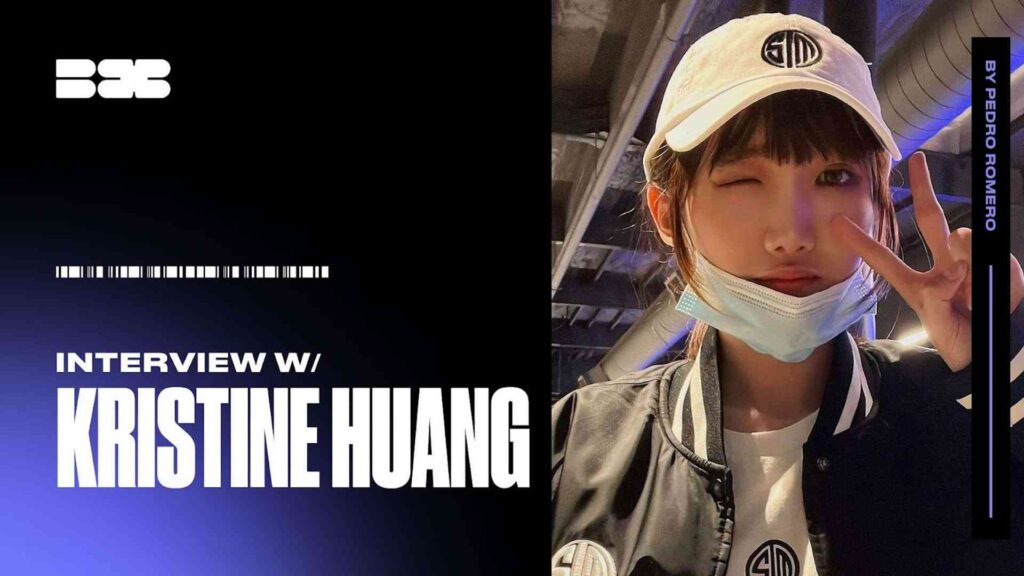In the first part of our two-part interview with TSM LoL Manager, Kristine Huang, she took us through the early days of her time in the industry.
In this second half we speak with her about her move back to TSM and more recent challenges she faced, including the COVID-19 Pandemic, as well as some advice for young hopefuls on how they can make their dream’s in the esports scene a reality one day too.
The COVID Pandemic and difficulties in Carry Live
Pedro Romero, BLIX.GG: When you joined Carry Live Co. in 2020, you basically had to experience the difficulties of the COVID-19 pandemic. As someone who had to experience everything locking down and move all your work from physical offices to purely remote. I can only imagine what it was like for someone in an esports management position to navigate that sort of environment, but how were you able to navigate through the pandemic?
Chien-Yu “Kristine’ Huang: I really love esports but I realize that the market is not that shiny like 10 years ago. I am a person who saw how it really grew to the top and became lower bit by bit. I started to take cases outside esports like how we have a lot of live broadcasts for media, makeup products, or some other brands. We started to find other cases for opportunities because we didn’t have enough esports projects to share within the Taiwan market. We have lots of third-party organizers there, but we don’t have much [sic] tournaments for everyone to operate so we started looking for other opportunities such as YouTuber things, Blockchain things, and we started developing in different directions.
BLIX: What was the most difficult thing for you to manage in terms of managing teams, managing players, and organizing logistics?
Kristine: I think communication is the hardest thing and also the most important thing. Every communication between each role in esports is important. Communication from league to teams, communication from sponsors to teams, internal communication, and external communication. I think communication is my biggest advantage. That’s how I can work in different roles because I have good communication skills to customers, players, leagues, and events.
I manage my colleagues but my communication is not like how I show people how good I am but, rather, it’s done in a way that makes a customer feel they believe I can do good in their event. I can also communicate to let the people know what they need to do. We would have a kickoff meeting and I’ll let everyone know what they should and shouldn’t do in the event.
BLIX: For someone to start a career in esports, with a college degree in English, you must have gone certainly gone the extra mile to adapt to whatever position you were in from HKE to Carry Live. How have you had to adjust in improving yourself and acquiring the skills to manage every project that you have done from with little experience at the start?
Kristine: I am eager to learn new things. When I get a case in a different area I totally don’t know, I start researching a lot of information even if it’s not about gaming. If the case is from a brand, I’ll start researching their brand and try to understand their core and how they would like me to fulfill their content. For example, I don’t do just League. I also do some work for Blizzard [Entertainment] tournaments, so I have to know there is a very big difference between each game publisher such as the production style and communication skill.
I have to adjust myself in researching Blizzard’s style as an overarching style and also, for Valorant, how the art design will look like. I will then take their design to make a reference to my deck and that is how I show my respect to the brand because I want to pitch their tournament event. That’s my job: to understand you first so that I can understand what does your brand want, and how your brand expects the event.
 Kristine (middle in front row) with the rest of the Carry Live Co. team
Kristine (middle in front row) with the rest of the Carry Live Co. team(Credit: Kristine Huang/Instagram)
BLIX: Was there a particular moment in time in which you felt you were being overwhelmed by all of the work you had to deal with?
Kristine: It’s a thing with two sides. For the good side, I’m very happy I am overwhelmed in this esports vibe because my whole life is full of esports. For example, when I arrive home from the office, I always open Twitch and watch tournaments even in my relaxed time. I also play League, Valorant, or Apex so even when I’m not working, I’m still doing some esports things. I read Reddit and watch the LCK and LPL. I don’t care if it is work, it is my life. My life is just esports.
For the bad side, that is when I am very optimistic. I will think “Oh, I’m so good. I’m so involved in esports and I enjoy my life with esports.” But the bad thing is when I look back, and I found my life is only esports. For example, I don’t have much connection with my classmates after I graduated because I started working and I just kept working and working every day. I didn’t maintain my friends during my childhood. All my friends now, actually, are in esports. It’s always esports to me. I started doing other hobbies. I scheduled to work out and if I have time, I will start watching movies.
BLIX: Do you feel like you sacrifice too much in focusing so much on esports that you weren’t able to focus on other things?
Kristine: No, I don’t think so. I don’t think it’s a sacrifice. I chose this because I love my job and I want to be in esports. I think I’m very lucky that not every person can work in the things they are interested in. I don’t think everyone can have a job who can have their dream job, but to me, I think I’m always doing my dream job.
Joining TSM
BLIX: From Carry Live, you moved to TSM in 2022. It’s your first time working outside of China and Taiwan. How did that come about? How were you contacted? Were you contacted? Did you contact them? How did that happen?
Kristine: Actually, Glen [Yang, TSM’s LoL GM] contacted me. We knew each other before and one day, he told me that TSM posted a job listing for a team manager who can speak Chinese Mandarin and English because they have some players who speak Mandarin. I thought about it and felt I wanted to give it a try, so I prepared the resume and cover letter and send it to them.
BLIX: What was your reaction in which TSM started taking you more seriously for the position?
Kristine: I was like, “Oh my God, I am the luckiest person in the world.” When I saw the offer being sent to my email, I felt I was really lucky. It was almost a dream because I started working by selling tickets and TSM was the team I watched on the stage. How I knew is that we had a global match in the venue so I started knowing about this team since [sic] early on and I didn’t even think there was a chance I would work there.
 Kristine with TSM Apex Legends player Phillip “ImperialHal” Dosen
Kristine with TSM Apex Legends player Phillip “ImperialHal” Dosen(Credit: Kristine Huang/Instagram story)
BLIX: From being accepted into the position, you flew to Los Angeles, California. In working from such a major position in handling esports of a given company to working in a much closer setting with a group of players for TSM, did you feel you experienced any difficulty in adjusting between your old and new environment?
Kristine: No, I don’t think there was difficulty because this is how I started in esports. My first real job was as a team manager so I’m still familiar with doing this. And because my last job was working in League, I know the rule set and how the domestic league communicates to teams so I think it’s a bonus to me. I know how to react to league requests or something like this.
BLIX: So, I guess everything just went full circle from being team manager in your first job and then to being team manager right now?
Kristine: Yeah, it’s just a circle and I found that even I’m not really a 100% professional in any other area, but I know at least the basic information from lots of things in esports. It makes it easier for me to think of solutions when I face some issues. At least I know who to ask for help.
BLIX: Everything has been what did what do you think has been the funniest say like, well, who’s the jokester winning the team? You know?
Kristine: Solo (Colin Earnest) is actually very funny. I think every player in our team is funny. They’re optimistic and they love to try making jokes.
BLIX: What do you think has been the biggest takeaway in working as a team manager?
Kristine: I think the biggest takeaway is to keep climbing and try to be kind and do good. If you always do good things, and you keep doing them, then the whole world will try to help you.
BLIX: Have you had any trouble adjusting to living in America after living in the East for basically your entire life?
Kristine: No, I don’t because I listen [sic] to American music and TV series since childhood so I think I’m kind of familiar with the culture here. And because I spend most of the time at work, to be honest, I don’t have time to go out that much. I think that’s why I don’t feel the difference.
Personal favorites and advice for women in esports
BLIX: Since the topic popped up, what’s your favorite TV show?
Kristine: My favorite TV series is Westworld. It’s really good and I rewatch it three to four times. Whenever I recommend someone to watch, I have to watch it with them for the first two episodes.
BLIX: What has been the highest rank that you’ve ever gotten while playing League?
Kristine: When I moved to Shanghai so that’s season eight because I changed account and now that I came to NA, I use that region’s account. Whenever I change regions, I have to switch accounts so I’m too lazy to play ranked after that. I think it’s season six or season seven and I really hard played ranked every day.
BLIX: What’s your favorite champion?
Kristine: It might be Ahri because she’s flexible. I like champions with moving abilities, so I like Ahri’s E because it’s good to engage.
BLIX: What would you say has been your proudest moment working in esports?
Kristine: There is one time where I was working with HKE and we just lost a game and we returned home. I don’t live with the players because I’m a female so they live together in the gaming house with the coaching staff so I went back home. All of a sudden, the coach messaged me saying EDG is not going to IEM, and they will have a vacancy and that if I can check with ESL if we are able to make up for it.
The first thing that came to my mind is “IEM is going to start in one week and we are still in Taiwan. How are we gonna make it?” I didn’t think I was able to do it because it’s a famous tournament brand. I tried to connect to ESL, and we talked around for two hours and we got the slot for HKE so there was a clear urgency during that night.
 Kristine as a member of HKE with H2K’s Marcin ‘Jankos’ Jankowski during IEM Season 11 World Championship in Katowice, Poland
Kristine as a member of HKE with H2K’s Marcin ‘Jankos’ Jankowski during IEM Season 11 World Championship in Katowice, Poland (Credit: Kristine Huang/Instagram)
I had to collect all the passports before 7 a.m. tomorrow because if I want to meet the match time, we had to depart from Taipei to Poland in 24 hours. Some players didn’t have a passport, so me and the GM rushed to the player’s house to help them apply for a temporary passport and try to book the flight tickets and lock everything down within 24 hours and we finally made it. We attended it in 2017.
Even though we didn’t get a good grade that year–the championship went to Flash Wolves, where Maple was–I’m proud that we finally made it. I attended my first global event within 24 hours. We also had a lot of rookies at that time so that was also the first time for lots of our players. We were super excited that we were attending that global event.
BLIX: You mentioned earlier on how you have viewed the arrival of more women into the esports scene, not just in League with the creation of competitive leagues like Game Changers in Valorant. How have you viewed the growth of women in esports in recent years?
Kristine: I heard that FPS games have more female gamers, but for working in the esports industry, we can divide it in different parts, but fans always see the team parts. Actually, other parts still have a lot of women in the media teams and in sponsorships. I want to talk about one woman. She is the person that helped me decide to follow this path to get into esports. I think she was the program director at LMS. I was working part-time in their show and I didn’t know anything about event production and I saw her profession at work. She talked to the assistant director and the audio/graphic man, and how she controlled the whole production during an on-site event in 2016.
That day, I was the assistant for the production team. I helped them get food and water because they don’t have time to go out. It was a really lucky thing because that was also the first day I could take a look at how production goes. I was outside selling tickets and selling popcorn before, but this is the first time I sneaked a peek at how production works and how the backstage is amazing. It was so well-structured. I saw her talk to everyone to control the full production in a very gentle way. That made me feel the esports atmosphere is so good, so I decided to follow her path in this industry. She is working in the LPL now but even then, she talked to everyone in a very gentle way.
BLIX: What piece of advice would you give to women who want to enter the space either in League or any other game within esports?
Kristine: If you really know you want to work in this industry, just take a deep breath and grab any opportunity coming to you. That’s because esports it’s not just playing games. It covers lots of very professional areas and different layers. There are game publishers, media companies, or content companies and you can find the role you fit in if you really like esports. Don’t just watch the teams and the tournaments. You can try to think of other parts like sponsorships for the hardware companies because they need to do research for how players play their games. They have to customize the keyboard and mouse pad so you can start your career in different areas and you will find what you want to do.


